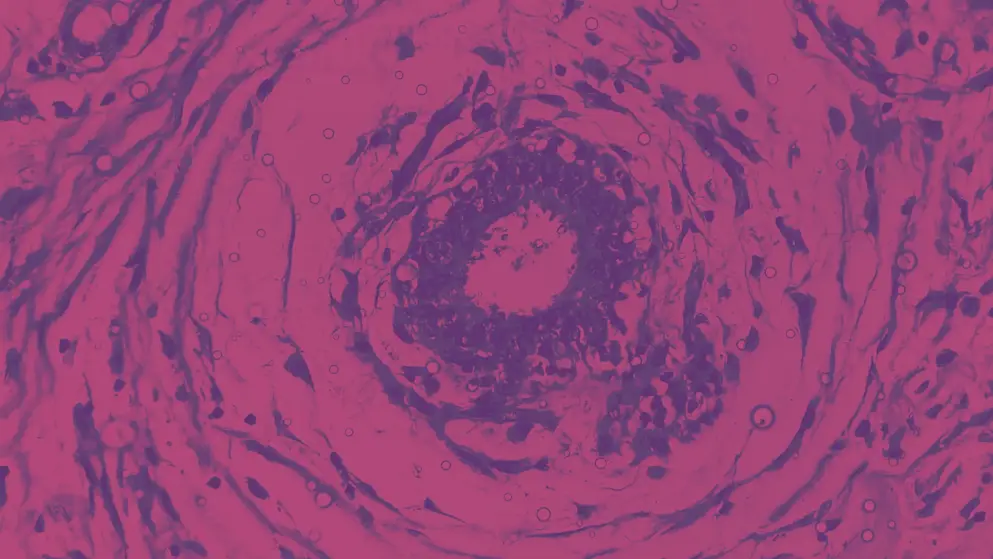
Medications for HS
EADV 2024
Georgios Nikolakis (Dessau Medical Center, Germany) shares his opinion on the most important piece of new research presented at EADV 2024. View transcript.
Nikolakis shares his thoughts on data from the BE HEARD I and II clinical trials for bimekizumab, noting the potential for its use as a long-term treatment. View transcript.
Martina Porter (Harvard Medical School, Boston, Massachusetts, USA) shares her opinion on the most important piece of new research presented at EADV 2024. View transcript.
Research presented in the late-breaking news sessions at the European Academy of Dermatology and Venereology (EADV) Congress 2024 highlighted the latest advances in medical treatment for hidradenitis suppurativa (HS).
This included an open-label extension of a phase 2 study of ruxolitinib 1.5% cream for mild-to-moderate HS. The participants had Hurley stage I or II HS and no draining tunnels.
By week 32, the abscess and inflammatory nodule (AN) count in patients initially assigned to active treatment (n=34) had decreased by an average of 3.95. And patients initially in the control group who switched to active treatment at week 16 (n=35) “essentially caught up”, to attain an average reduction in AN count of 3.96, reported Martina Porter (Harvard Medical School, Boston, Massachusetts, USA).
There were two treatment-emergent adverse events (TEAEs) considered related to treatment during the open-label period – grade 1 diarrhoea and application site pain.
This really could be a novel approach to treating milder HS, for which there are no approved treatment options right now.
Also reported, by Kim Papp (University of Toronto, Ontario, Canada), was a phase 3 trial of weekly izokibep 160 mg for moderate-to-severe HS. A significantly higher proportion of people taking izokibep versus placebo achieved at least a 75% improvement in Hidradenitis Suppurativa Clinical Response (HiSCR) at week 12, at 33% versus 21%, with a significant difference seen from week 4.
People taking izokibep had more injection-site reactions than those taking placebo (65.1% vs 7.8%), and a slight increase in fatigue and diarrhoea, but TEAE rates were otherwise similar between the groups.
Martina Porter discusses the results of an izokibep trial presented at EADV 2024. View transcript.
Finally, Christos Zouboulis (Brandenburg Medical School Theodor Fontane, Neuruppin, Germany) presented data from BE HEARD EXT, the 1-year extension study of the phase 3 BE HEARD I&II trials of bimekizumab in HS. He reported that HiSCR response rates were maintained, ranging from 44.2% for HiSCR100 to 85.4% for HiSCR50 at week 96. There were no new safety concerns.
EHSF 2024
Medications for HS
Catch up with the latest on pharmacological treatments for hidradenitis suppurativa (HS) presented at EHSF 2024, featuring expert interviews with Dr Antonio Martorell and Dr Philippe Guillem covering personal highlights and real-world studies.
Dr Antonio Martorell reflects on developments discussed at EHSF 2024, covering personal highlights and how new developments may help to address the challenges faced in HS. View transcript.
Dr Philippe Guillem discusses real-world studies presented at EHSF 2024, including new treatment classes. View transcript.
Updates from EHSF 2024
Selected data presented on pharmacological treatments at the 2024 European Hidradenitis Suppurativa Foundation conference.
Disease duration impact in BE HEARD I and II
Linnea Thorlacius (Zealand University Hospital, Roskilde, Denmark) presented post hoc analyses of the phase 3 BE HEARD I and II trials assessing the impact of disease duration on the efficacy of bimekizumab 320 mg in people with moderate-to-severe HS.
She stressed that diagnostic delay in people with HS often results in them having severe disease by the time of diagnosis.
In BE HEARD I and II, treatment in patients with a shorter disease duration resulted in higher response rates when compared with those with a longer disease duration
For example, the Hidradenitis Suppurativa Clinical Response (HiSCR)75 rates at week 48 ranged from 63.8% to 73.1% in participants in the lowest quartile for disease duration, compared with 50.0% to 55.1% among those in the highest quartile.
Bimekizumab has not yet been approved for use in HS; however, an application has been submitted to the relevant regulatory bodies.
Thorlacius concluded by stressing that, although bimekizumab was efficacious regardless of treatment duration, the findings highlight the importance of timely diagnosis and treatment to achieve the best results in people with HS.
What is the optimal dosing interval for secukinumab in severe HS?
Pierre-André Bécherel (Private Hospital Antony, Paris, France) focused on the challenge of how to select the most appropriate interval when using biologics in people with severe HS.
He presented a real-life study of 47 people with HS who received secukinumab 300 mg either every 2 weeks (n=24) or every 4 weeks (n=23).
At 6 months, 10 (43.4%) patients receiving treatment every 4 weeks improved, with their mean International Hidradenitis Suppurativa Severity Score System (IHS4) decreasing from 15.6 to 10.7. The other 13 patients worsened or remained stable, but six of these improved after being switched to treatment every 2 weeks, achieving a mean IHS4 score of 6.9 at 9 months.
Sixteen (66.6%) people with a 2-week dosing interval from the outset also improved by month 6, with their mean IHS4 score decreasing from 14.9 to 5.4. The rate of improvement was significantly greater than in the 4-week dosing group (P<0.001).
Results from this study suggest a 2-week interval is preferred for secukinumab; however, it is important to note that this study solely focused on people with severe HS and the findings cannot be applied to people with moderate HS.
This content has been developed independently of the sponsor, UCB Biopharma SRL, which has had no editorial input into the content. EPG Health received funding from the sponsor in order to help provide its healthcare professional members with access to the highest quality medical and scientific information, education and associated relevant content. This content is intended for healthcare professionals only.

